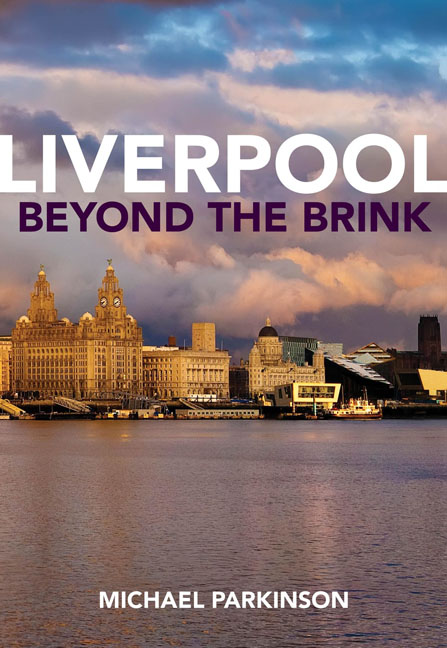Book contents
- Frontmatter
- Dedication
- Contents
- Acknowledgements
- 1 What is the Liverpool story and why does it matter?
- 2 Liverpool goes on – but pulls back from – the brink, 1973–88
- 3 Liverpool begins to become normal, 1988–98
- 4 The rise of the aspiring premier European city, 1998–2010
- 5 Continuing ambition in an age of austerity, 2010–19 99
- 6 The state of Liverpool's economy today
- 7 Liverpool beyond the brink: what are the lessons and what is to be done?
- Index
6 - The state of Liverpool's economy today
- Frontmatter
- Dedication
- Contents
- Acknowledgements
- 1 What is the Liverpool story and why does it matter?
- 2 Liverpool goes on – but pulls back from – the brink, 1973–88
- 3 Liverpool begins to become normal, 1988–98
- 4 The rise of the aspiring premier European city, 1998–2010
- 5 Continuing ambition in an age of austerity, 2010–19 99
- 6 The state of Liverpool's economy today
- 7 Liverpool beyond the brink: what are the lessons and what is to be done?
- Index
Summary
This book has looked at the renaissance of Liverpool during the past thirty years as its leaders responded to its demise as a globally connected imperial city. It has shown how they tried to deal with the impact of post-imperial economic decline on its political, physical, social and financial infrastructure and behaviour. It has assessed the impact of a range of initiatives designed to regenerate Liverpool city centre and to underpin it with a more sustainable economy. It has shown how those initiatives, which were often externally generated by European or national government, gradually combined to regenerate and reconnect parts of the city into a more coherent place. Liverpool is going through a successful if still incomplete process of renaissance that has better equipped it to survive in a globally challenging economy. But this book has also shown that not all places or people have shared in the fruits of the city's success.
This book has focused on the physical renewal of the city because this has been the primary focus of Liverpool's leaders since the collapse of the Militant Tendency regime in the late 1980s. The scale of the renewal challenge meant that this was inevitable. Many regeneration initiatives were impressive, well regarded and often nationally significant. The approach worked. Nevertheless, this approach will not be enough to ensure that in future Liverpool is a serious economic player at a European let alone global level. That will need a clearer focus on economic competitiveness beyond the regeneration of particular parts of the city, however important they are currently. The city will have to develop its assets and the drivers of a modern successful city region. It will also need a change of scale. Until relatively recently the effort to regenerate Liverpool has focused mainly though not exclusively on the city, in particular its centre. But economic logic as well as national policy means that Liverpool cannot operate at that scale in future. Its challenges will have to be met at the level of the city region – economically, socially, environmentally and politically. Given these economic realities, this chapter moves beyond the story of the historic renaissance of the city of Liverpool to examine the fundamental position of the Liverpool city region economy. It looks at some of the hard evidence about – but also some perceptions of – its performance and prospects.
- Type
- Chapter
- Information
- Liverpool Beyond the BrinkThe Remaking of a Post-Imperial City, pp. 117 - 132Publisher: Liverpool University PressPrint publication year: 2019



